10 SEO Tips for Your Vacation Rental Site (that ACTUALLY work)
7 October 2021 - 8 mins
7 October 2021 - 8 mins

How can I get my vacation rental site to the top of Google’s results?
This is a question we get asked so often, we thought we’d write up our top tips into a guide
SEO is a massive topic that can quickly become overwhelming, so we’ve made sure to only choose actionable tips that will have the biggest impact.
Let’s get into it!
You want your website to be the first result in google when people search for your vacation rental’s name, as this means people can find your site without knowing your exact URL.
However this can be really difficult if you choose a generic name, as you’ll be more likely to be competing with other websites.
For example, if you called your property ‘tenerife villa’, you're going to be competing with really powerful websites who are also spending a ton on ads:
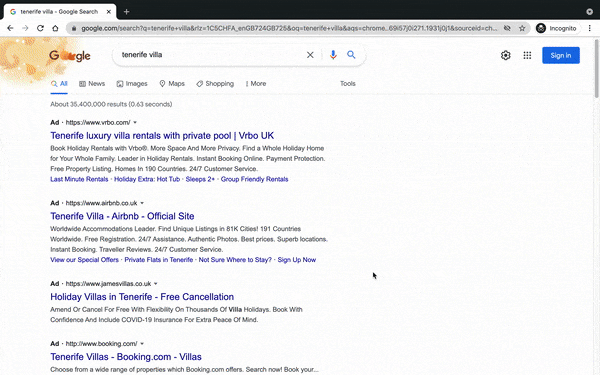
On the other hand, a name like ‘dolphin villa’, for example, is much more unique, and therefore much easier to rank for.
Once you’ve chosen your rental name, you’ll want to try and include it both in the URL of your website, and also in the heading at the top of the homepage.
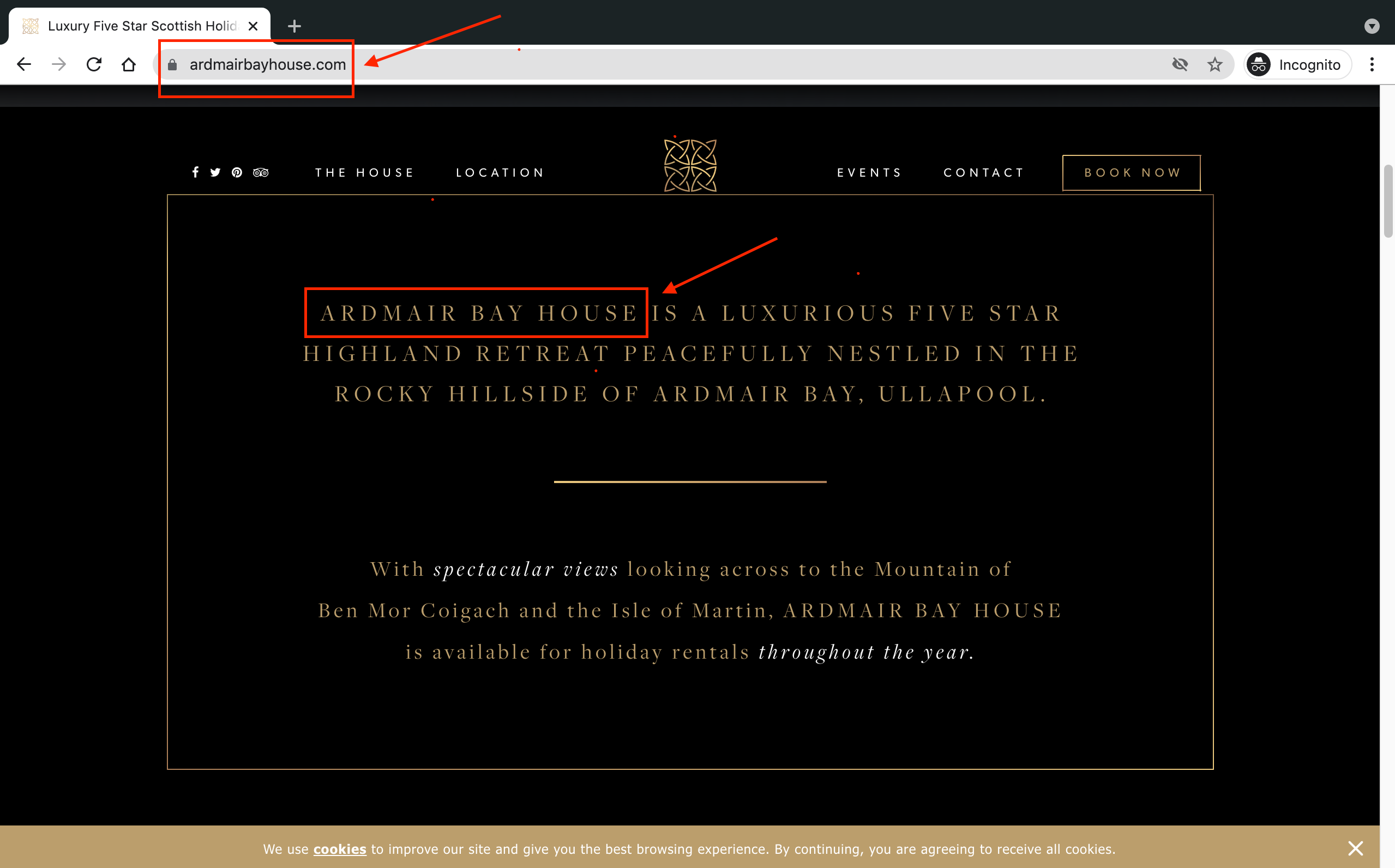
If you already have a website, it’s really important to be sure Google is indexing it properly. In other words, has Google been able to access your website’s pages?
To check this, you can use the following google search operator:
site:yourdomain.com
This will make google list all the pages on your website. If google is indexing your site properly, you should be able to see all the pages of your website in the results.
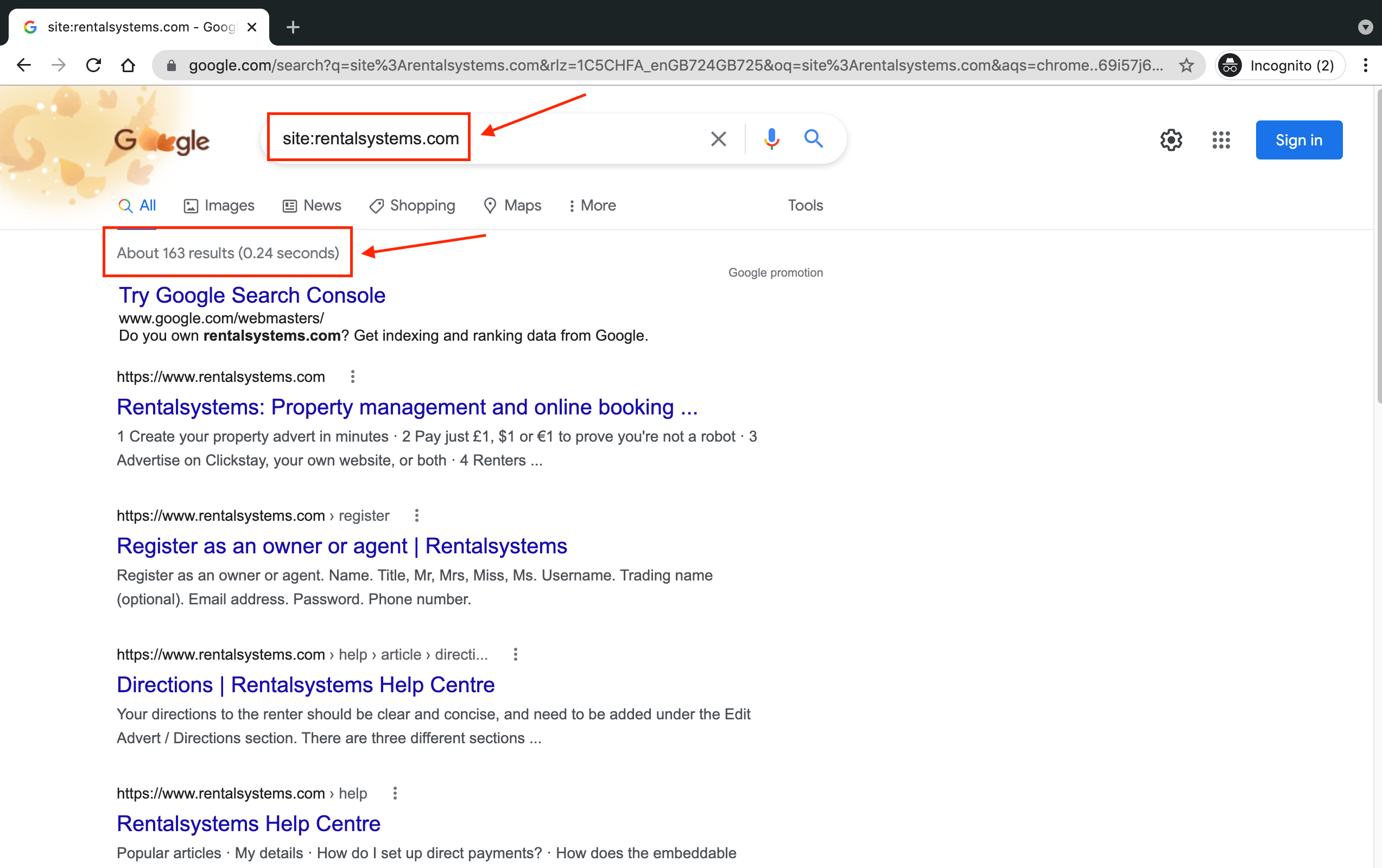
If none (or very few) of your pages are showing up, you may need to get some specialist help as there’s likely something wrong with your site. Unless your site is under a month old, in which case don’t panic just yet!
This is a seriously underrated tool. By creating a Google My Business account and filling in your information, you can appear in the panel on the right hand side when people google your brand name AND (perhaps even more importantly) in the map result for local searches.
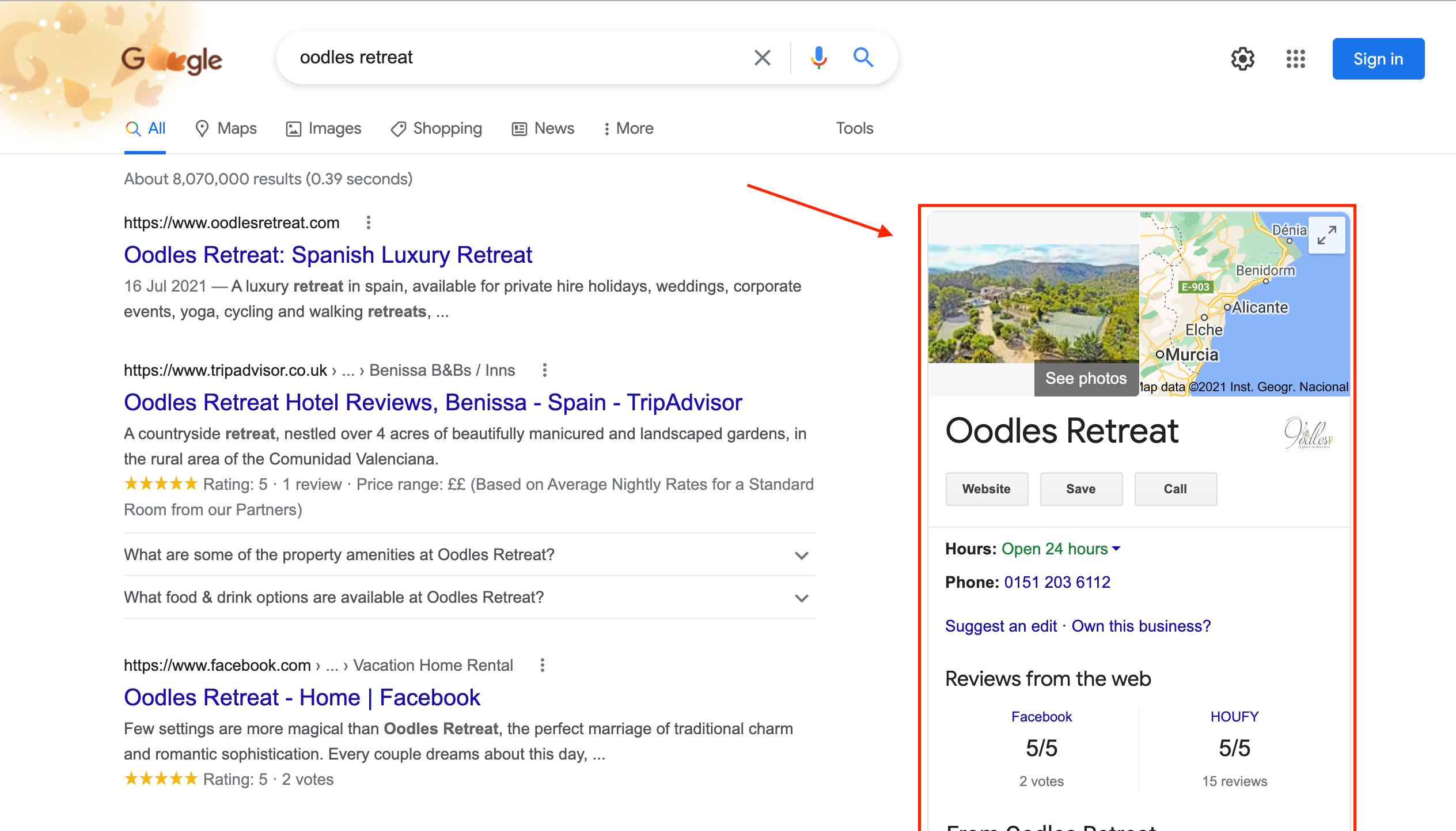
Considering it’s completely free and only takes a few minutes to input your information, it’s a no brainer!
To get started, head to the Google My Business website and click ‘start now’ to begin filling in your information. It’s worth taking the time to include as much information as possible, including images of your property and a link to your website.
Note, Google will send a letter to your business address with a verification code, so you’ll have to wait a few days before your listing goes live.
Google Search Console is a platform which allows you to see what search queries people are typing to see your website.
All you need to do is verify your website by adding a line of code. You can see the full instructions here: Verify your site ownership.
If you’re no good at code, you can ask a tech savvy friend, or pay a freelancer on fiverr a small amount.
Once installed, log on at searchconsole.google.com, click ‘Search Results’, then the ‘Queries’ tab.
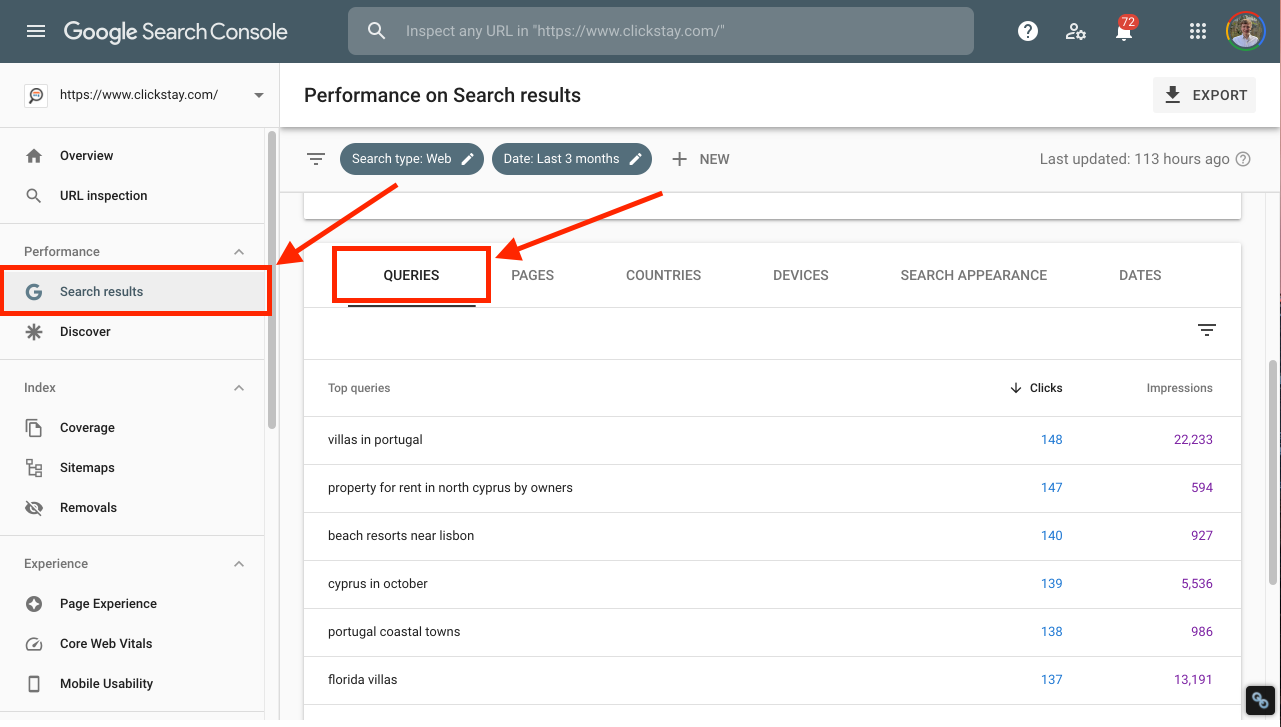
Search console also allows you to monitor any health performance issues your site might be experiencing in the 'Coverage' section, but this gets a bit technical!
Publishing blog posts about your local area is a really good way to connect with people researching a potential holiday.
Types of topics you should write about:
Make sure to include nice images in your posts to make them as engaging as possible.
If you want to see how many people are searching for information about these topics each month, you can use a free keyword research tool like Uber Suggest.
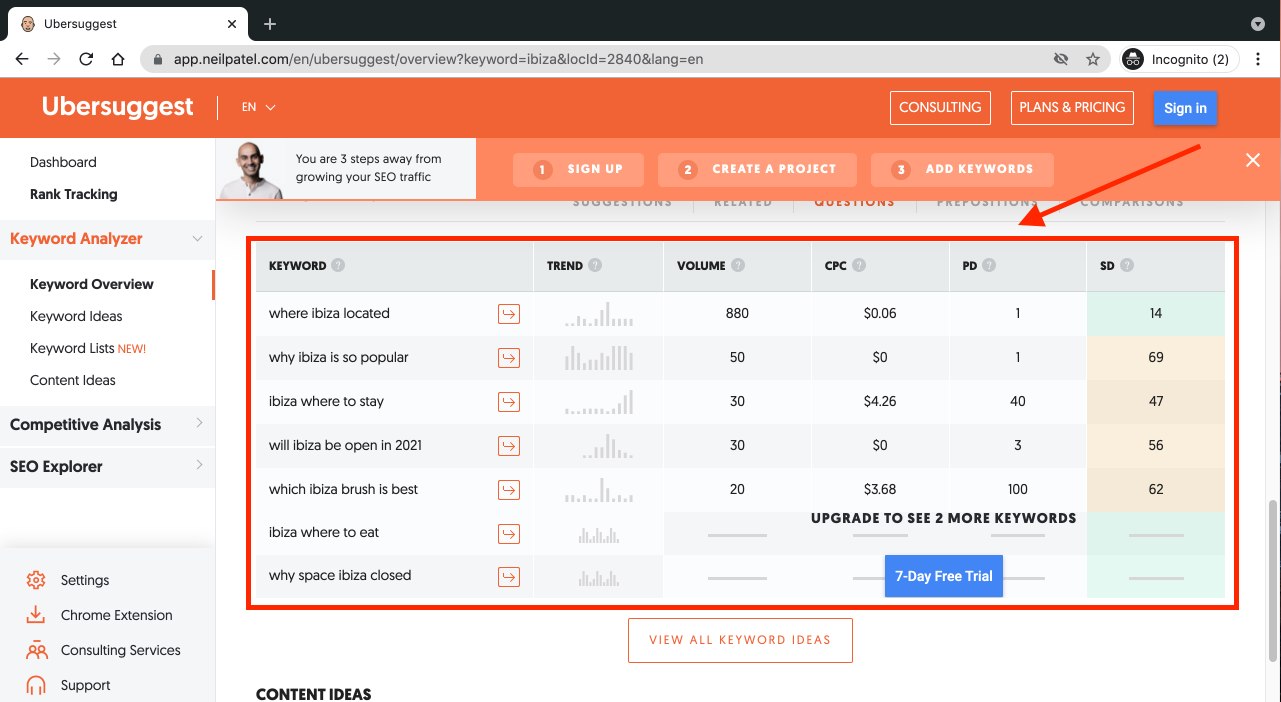
Page titles and meta descriptions are important for telling users and search engines what your web page is about. They are what you see when you click through to a website from Google’s results.
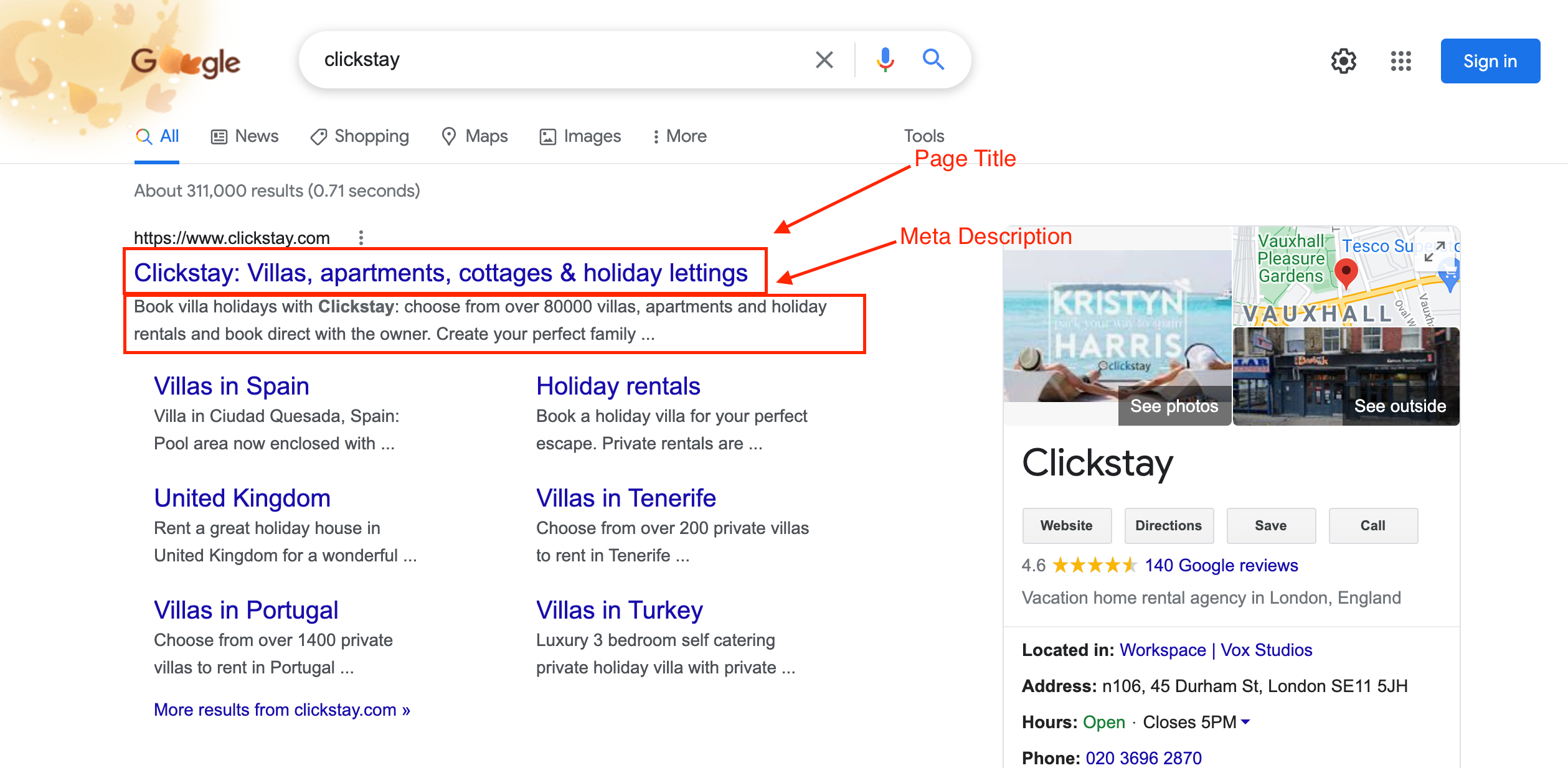
Most website builders allow you to do this relatively easily. If you use wordpress, you’ll need to download the Yoast plugin.
If you’re unsure however, a quick google search should help you out.
Google image searches are still super popular. It can therefore pay off big time to make sure you optimise your images as well.
Luckily, it’s really simple to do. All you need to do is add something called alt text describing what the image is. Keep your descriptions short and sweet!
Again, each website builder has a slightly different way of doing this, so you’ll need to check the best way to do this if you’re unsure.
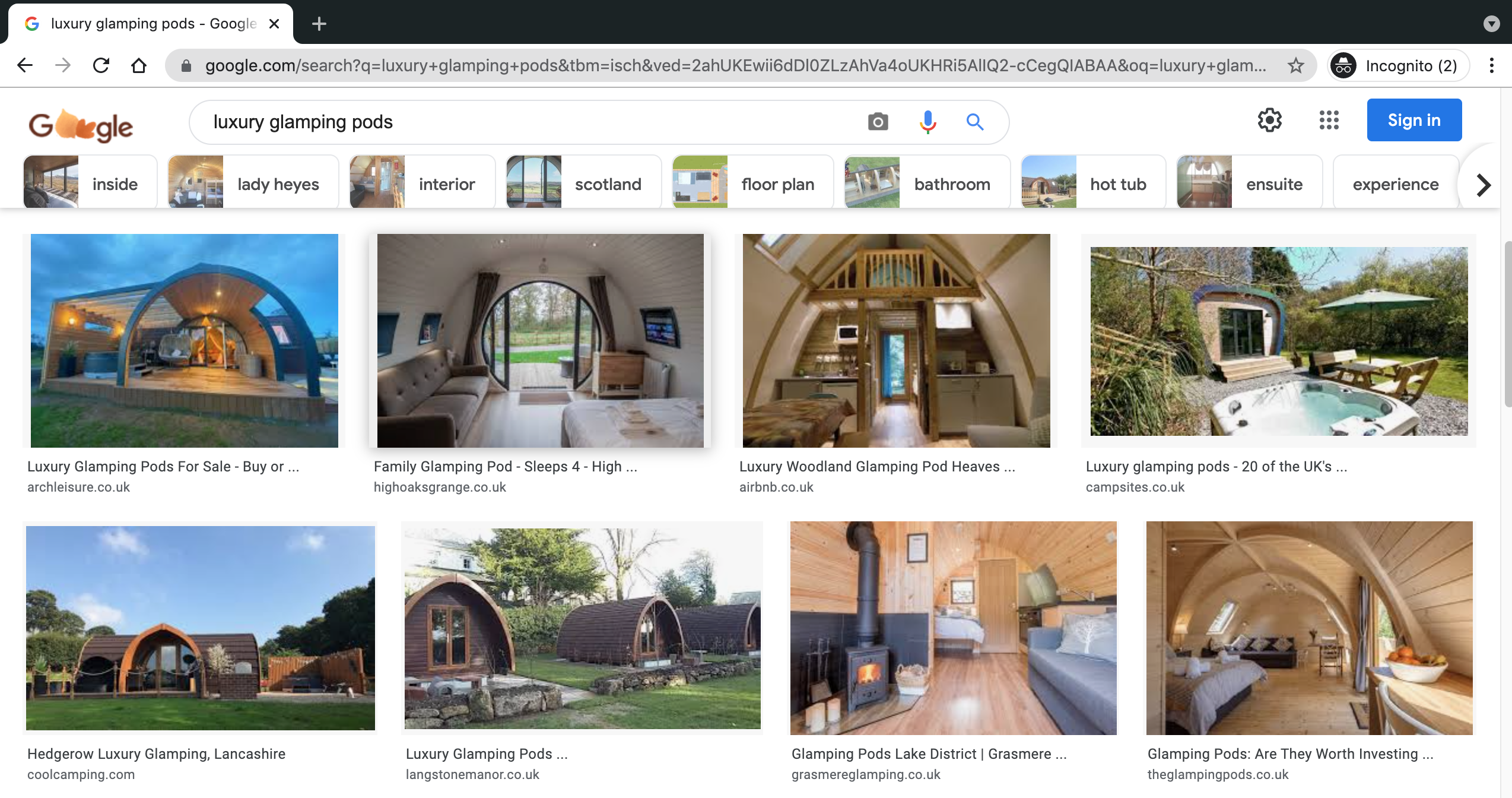
Having a quick website is not only important for user experience, but is becoming increasingly important for SEO too.
Personally, I think there are more productive ways to spend your SEO efforts than obsessing over site speed. But having said that, you definitely want to avoid having a really slow website as this can definitely hurt your rankings.
To check your website speed, head to Google Page Speed Insights and enter your website domain.
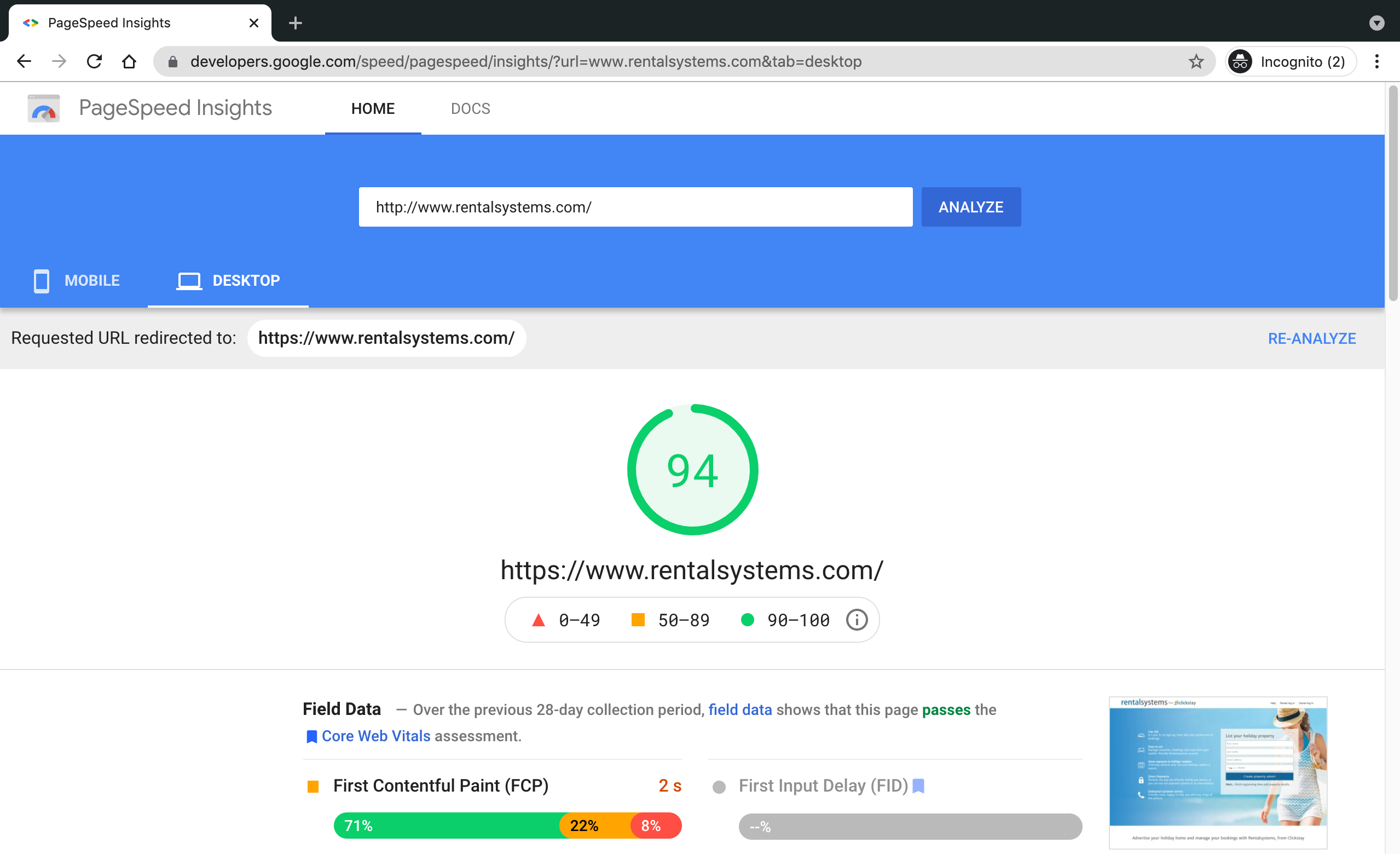
If your site speed is under 15/100 on desktop, then it’s probably something worth following up on.
You’ll probably need a web developer to diagnose the issue if you’re not techy, but two questions you may want to ask yourself are:
Backlinks are links from other websites to yours, and are gold dust when it comes to SEO.
Most backlinks come in the form of in-text hyperlinks, which look like this:
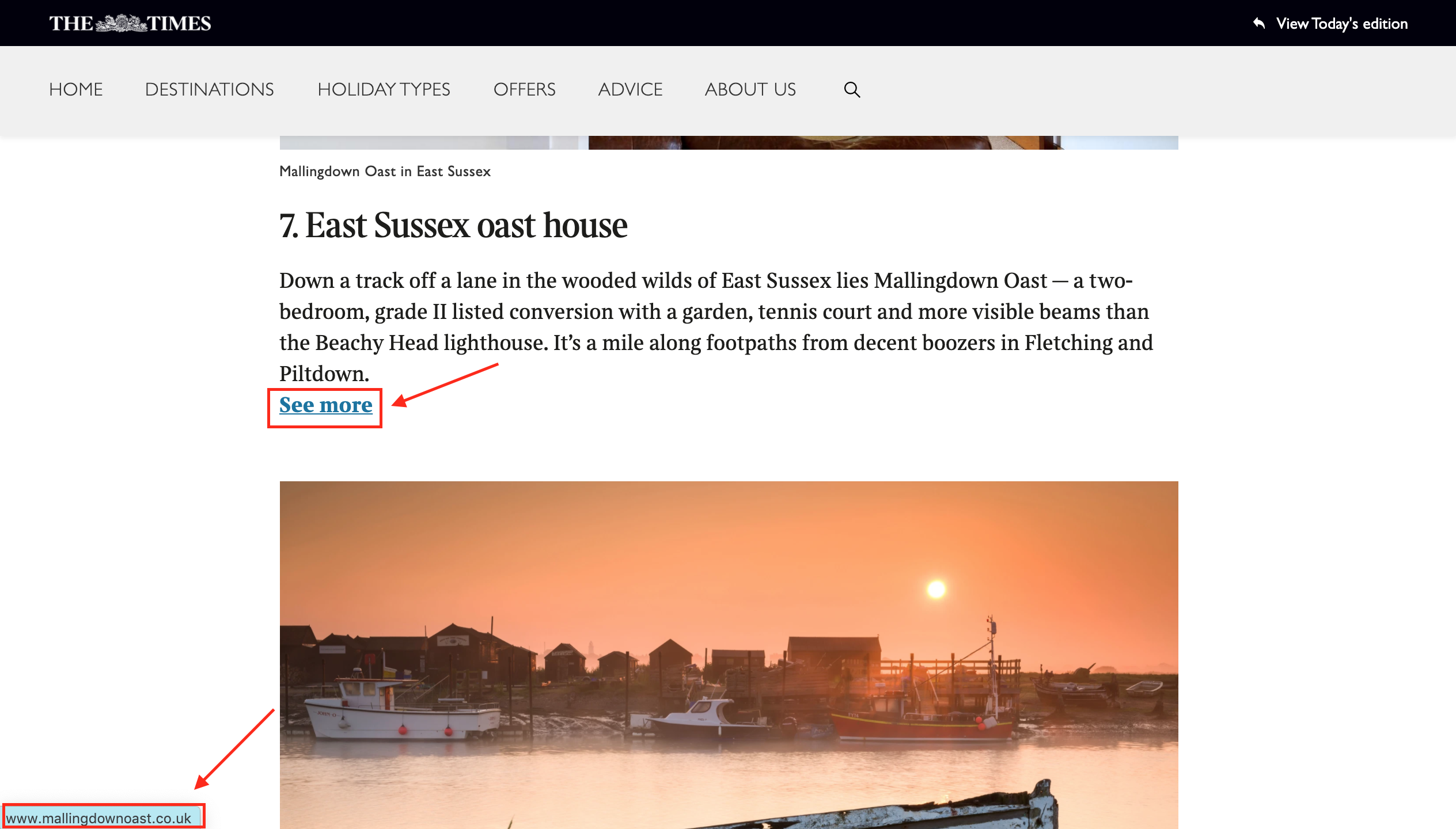
Google considers each link to your site as a vote of confidence. So the more trusted, relevant websites that link to yours, the better your site will perform in google.
If I’m completely honest, link building (i.e. the process of trying to convince websites to include a link to yours) is one of the most difficult (read: infuriating) parts of SEO, so you shouldn’t beat yourself up if you struggle here.
But, it’s worth racking your brain to see if there are any local tourism sites or friend’s holiday rental sites who’d be happy to link to you. Or you could even try your hand at a bit of PR!
One common technique you can try is emailing the owner of site you want a link from to ask if you can write a blog post for their website, then include a link back to your website in the post. This process is called ‘Guest Posting’ if you want to look into it further.
Google has consistently insisted that social signals, such as 'likes' 'shares' etc., are not a ranking factor.
However, social media does impact engagement and brand strength, which are really important ranking factors.
You may already have a pretty good social presence, but if not, I'd recommend starting with Facebook and Instagram.
Start by posting a few nice images of your property and the surrounding area, and inviting friends to like your page.
And make sure to include a link to your website in the bio!
----------------------
Want to learn more? The Rentalsystems Facebook group is where owners share tips and strategies to increase bookings. It's a great place to bounce SEO ideas around. I'm also a member, so if you have any burning SEO-related questions, I'd be happy to help!